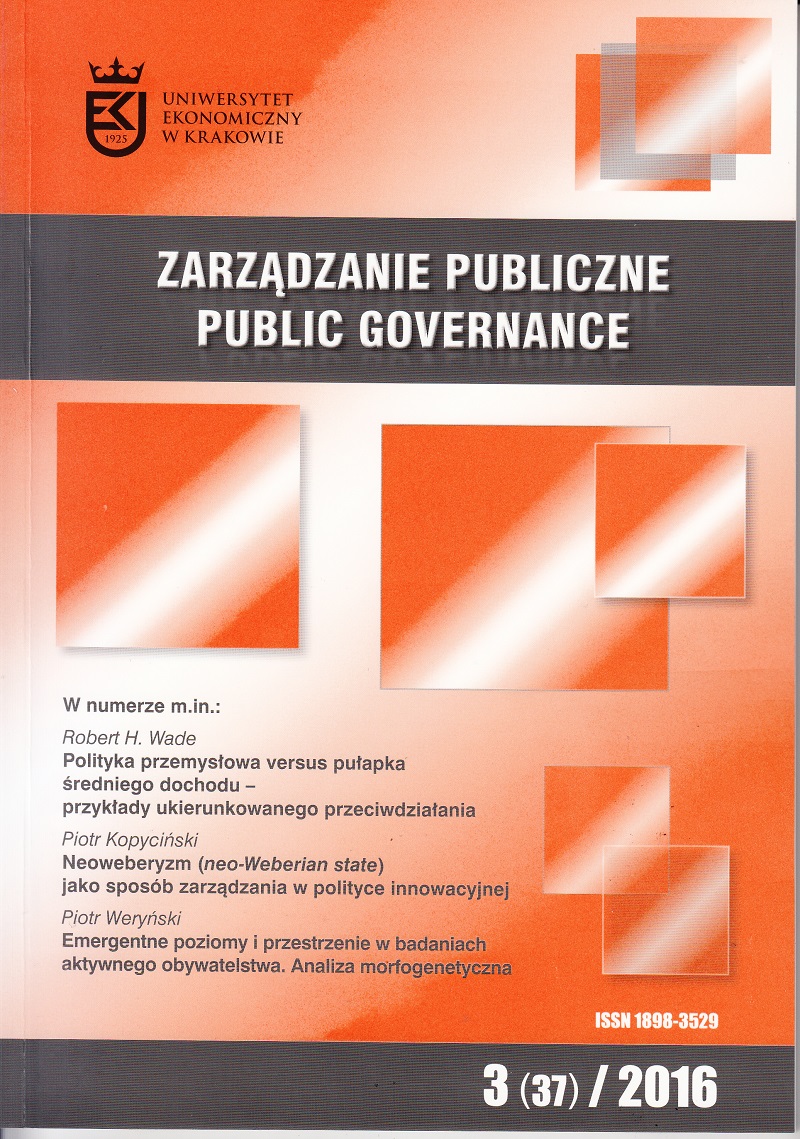Neoweberyzm (neo-Weberian state) jako sposób zarządzania w polityce innowacyjnej
NEO-WEBERIAN STATE AS A MODE OF COORDINATION OF THE INNOVATION POLICY
Author(s): Piotr KopycińskiSubject(s): Politics / Political Sciences, Economy, Public Administration
Published by: Uniwersytet Ekonomiczny w Krakowie we współpracy z Wydawnictwem Naukowym Scholar
Keywords: modes of governance; neo-Weberian state; innovation policy; smart specialization
Summary/Abstract: Critical opinions on the methods of innovation policy coordination (New Public Management and governance), which abound recently, especially after the 2008–2009 crisis, are not yet ref lected in adequate changes in EU documents determining the implementation of this policy. In EU studies, multi-level governance is the preferred mechanism of coordination. Meanwhile, one of the main reasons of the failure to implement the Lisbon Strategy is rejecting the need for competently functioning public administration capable of long-term thinking. The approach emphasizingthat successful implementation of public policies depends on the existence of efficient administration, derived from M. Weber’s oeuvre, called the neo-Weberian state. The purpose of this paper is to describe the neo-Weberian state approach compared to other approaches to public management, and to indicate which features of a mechanism for coordinating collective action are used in the design of innovation policy. In order to achieve the goal, the author discusses the process of establishing regional smart specializations in the Małopolskie voivodeship. Next, he matches it with four models of administration: Weber’s administration, New Public Management, governance, and neo-Weberian state model. The analysis shows that this process has some characteristics of both the governance model and the neo-Weberian state. One can expect that the neo-Webarian state approach will be considered as an alternative mechanism of coordination in the context of innovation policy planning in the coming years.
Journal: Zarządzanie Publiczne
- Issue Year: 2016
- Issue No: 37
- Page Range: 26-37
- Page Count: 12
- Language: Polish

